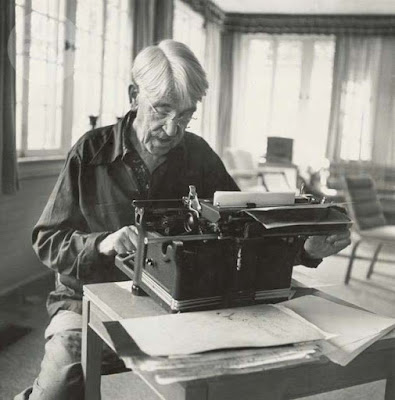John Dewey at his Marxian and democratic best
Hilary Putnam shares a passage from John Dewey at his
Marxian and democratic best:
“Dewey’s social philosophy is not simply a restatement of
classical liberalism; for, as Dewey says, the real fallacy of classical
liberalism [a fallacy which persists with vengeance in neoliberalism]
‘lies in the notion that individuals have such a native or
original endowment of rights, powers, and wants that all that is required on
the side of institutions and laws is to eliminate the obstructions they offer
to the ‘free’ play of the natural equipment of individuals [if you will, the
‘libertarian fallacy’]. The removal of obstructions did have a liberating
effect upon such individuals [e.g., the bourgeoisie and the nobility, including
declassed aristocrats, with some trickle down and spillover effects on some
members of the lower classes] as were antecedently possessed of the means,
intellectual and economic, to take advantage of the changed social conditions,
but left all others at the mercy of the new social conditions brought about by
the free powers of those advantageously situated. The notion that men are
equally free to act if only the same legal arrangements apply equally to
all—irrespective of differences in education, and command of capital, and that
control of the social environment which is furnished by the institution of
property—is a pure absurdity, as facts have demonstrated. Since actual, that
is, effective, rights and demands are products of interactions and are not
found in the original and isolated constitution of human nature, whether moral or
psychological, mere elimination of obstructions is not enough. The latter
merely liberates force and ability as it happens to be distributed by past
accidents of history. The ‘free’ action operates disastrously as far as the
many are concerned. The only possible conclusion, both intellectually and
practically, is that the attainment of freedom conceived as a power to act in
accord with choice turns upon positive and constructive changes in social
arrangements.’
We too often forget that Dewey was a radical democrat, not a radical scoffer at
‘bourgeois democracy.’ For Dewey the democracy that we have is not something to
be spurned, but also not something to be satisfied with. The democracy that we
have is an emblem of what could be. What could be is a society which develops
the capacities of all its men and women to think for themselves, to participate
in the design and testing of social policies, and to judge results.” — From
Putnam’s Renewing Philosophy (Harvard
University Press, 1992): 199.











0 Comments:
Post a Comment
<< Home